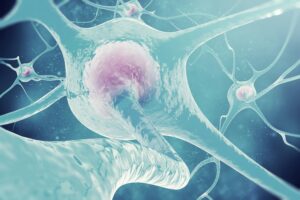The Hidden Connection – How Gut Health Shapes Brain Function
Recent scientific breakthroughs have unveiled an extraordinary relationship between our digestive system and our brain—a connection that holds profound implications for mental health and cognitive function. At the Meshkin Foundation, we are at the forefront of supporting research that explores this fascinating frontier of medical science.
The Microbiota-Gut-Brain Axis: Nature’s Hidden Communication Network
The microbiota-gut-brain axis represents one of the most remarkable discoveries in modern neuroscience. This intricate communication system reveals how the trillions of microorganisms residing in our digestive tract directly influence our neurological health and cognitive capabilities.
These microscopic inhabitants—collectively known as the gut microbiota—do far more than assist with digestion. Based on the research, they synthesize crucial neurotransmitters, including serotonin and dopamine, that regulate our mood, memory, stress response, and overall cognitive function.

Dysbiosis: When the Delicate Balance Is Disrupted
When the harmonious composition of our gut microbiota is disturbed—a condition known as dysbiosis—the consequences extend far beyond digestive discomfort. This imbalance has been linked to a spectrum of neurological and psychiatric conditions, including anxiety, depression, autism spectrum disorders, and even neurodegenerative diseases like Alzheimer’s and Parkinson’s.
The connection works through multiple pathways. One critical mechanism involves the production of short-chain fatty acids (SCFAs) by beneficial gut bacteria. These compounds play an essential role in modulating inflammation and neuroimmune responses, effectively protecting the brain from injury and supporting cognitive health. Studies have consistently demonstrated that SCFAs are vital for maintaining brain homeostasis and preventing cognitive decline.
Moreover, SCFAs play a role in modulating the synthesis of neurotransmitters like serotonin, dopamine, noradrenaline, and adrenaline.
Psychobiotics: The Future of Mental Health Intervention
An emerging and promising field is the study of psychobiotics—specialized probiotics that positively influence mental health through their action on gut microbiota. These beneficial microorganisms operate primarily through the hypothalamic-pituitary-adrenal (HPA) axis, which governs our endocrine system’s response to stress and regulates the production of key neurotransmitters.
Clinical evidence increasingly supports the use of psychobiotics as complementary treatments for various mental health conditions. These powerful allies can be readily accessed through fermented foods rich in probiotics, providing a natural and holistic approach to mental wellness.

The Vagus Nerve: A Direct Communication Pathway
The vagus nerve serves as a critical direct communication pathway between the gut and brain. Microbial metabolites stimulate vagal afferents (sensory nerve fibers within the vagus nerve that carry information from the body’s organs and tissues to the brain), creating a communication line independent of immune or hormonal factors. This connection explains how gut disturbances rapidly affect brain function. Studies reveal that signals transmitted through this neural highway influence mood regulation, stress response, and cognitive processes, further illustrating why maintaining gut health is essential for optimal neurological function.
Nourishing the Gut-Brain Connection: A Nutritional Strategy
Several studies have identified several food categories that particularly support the gut-brain axis:
Omega-3 Fatty Acids: These essential fats, abundant in salmon, mackerel, flaxseeds, and walnuts, are crucial for optimal brain health and function. They reduce inflammation and support neuronal structure and communication.
Fermented Foods: Yogurt, kefir, kombucha, and kimchi deliver potent probiotics directly to the gut, supporting microbial diversity and enhancing mental health outcomes.
High-Fiber Foods: Vegetables, fruits, legumes, and whole grains nourish beneficial gut bacteria and promote the production of SCFAs, which are essential for brain health and cognitive function.
Polyphenol-Rich Foods: Deeply colored fruits and vegetables, dark chocolate, and green tea contain powerful compounds that reduce intestinal inflammation and support the gut-brain axis through multiple mechanisms.
Tryptophan-Rich Foods: This essential amino acid, found in turkey, eggs, nuts, and seeds, serves as a precursor to serotonin, helping to regulate mood and emotional stability. Consumption of tryptophan-rich foods can support healthy neurotransmitter production and balanced mood.

The gut-brain connection represents a paradigm shift in healthcare—one that merges nutritional science with neurological research to create innovative approaches to wellness. Nurturing gut health through mindful nutrition and lifestyle choices may be one of the most accessible and effective strategies for enhancing brain function and reducing the risk of neurological disorders.
As we continue to advance our mission at the intersection of innovative healthcare and sustainable nutrition, Meshkin Foundation invites you to join us in exploring the remarkable potential of the gut-brain connection—a frontier of wellness that promises to revolutionise our approach to mental health and cognitive longevity.
